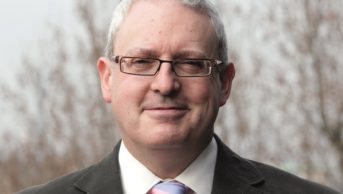
Ian Shaw / Alamy
All pharmacists, even UK nationals, will in future have to be competent in speaking English if they want to practise in the UK, according to proposals from the Department of Health now out for consultation.
The plan is being put forward as part of the government’s pledge, made two years ago, to prevent foreign healthcare professionals from working in the NHS unless they have passed robust language and competence tests.
Pharmacists from the European Economic Area (EEA) will be expected to provide proof of their language skills to the General Pharmaceutical Council (GPhC) or to the Pharmaceutical Society of Northern Ireland (PSNI). If the EEA pharmacist is unable to provide the necessary evidence, he or she will be invited to complete an English language assessment to prove they can practise safely.
At the same time, ministers want to change the law so that any pharmacist — including UK nationals — can be brought before a professional fitness to practise committee hearing on the grounds that his or her lack of knowledge of the English language poses a risk to patients. And if his or her ability to speak English threatens patient safety, the GPhC or the PSNI would have the authority to withdraw the pharmacist from the professional register.
The pharmacist could be asked to complete an English language assessment as part of the hearing, with the results influencing the committee’s decision, according to the consultation document.
The government is leaving it up to the GPhC and the PSNI to decide how to prove whether a pharmacist has adequate English language skills.
The consultation document[1]
explains that including UK nationals in the plans will ensure equal treatment of applicants, so that Europeans are not subjected to more onerous requirements than ‘home’ applicants.
The Department of Health is confident that the additional requirements for pharmacists who graduated from a university in the UK will not create any extra burdens.
“The fact that the registrar will be able to rely on the information supplied by [UK graduates] with their registration application should mean that a registrar should be satisfied about the English language ability of UK qualified applicants with no additional procedural burden,” it says.
The proposed changes, which will also apply to pharmacy technicians, will require amendments to the Pharmacy Order 2010 and to the Pharmacy (Northern Ireland) Order 1976.
The proposals extend to nurses, midwives, dentists and dental care professionals, bringing them in line with the English language restrictions that already apply to doctors who wish to practise in the UK.
The department wants the proposals, first mooted by the government in 2010, to be approved by the end of this Parliament. If that happens, it will then be up to healthcare professional regulators, including the GPhC, to come up with their own recommendations for implementing the changes.
The consultation runs until 15 December 2014. The changes would apply to pharmacists in England, Wales, Scotland and Northern Ireland.
- This article was amended on 10 November 2014 to reflect more clearly that the proposed changes would apply to pharmacists working in England, Wales, Scotland and Northern Ireland.
References
[1] Department of Health. Language Controls for nurses, midwives, dentists, dental care practitioners, pharmacists and pharmacy technicians: Proposed changes to the Dentists Act 1984, the Nursing and Midwifery Order 2001, the Pharmacy Order 2010 and the Pharmacy (Northern Ireland) Order 1976 — a joint four-country wide consultation. November 2014.


